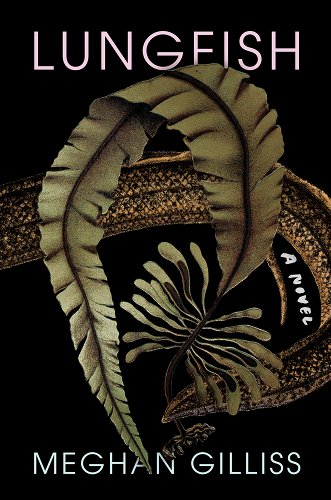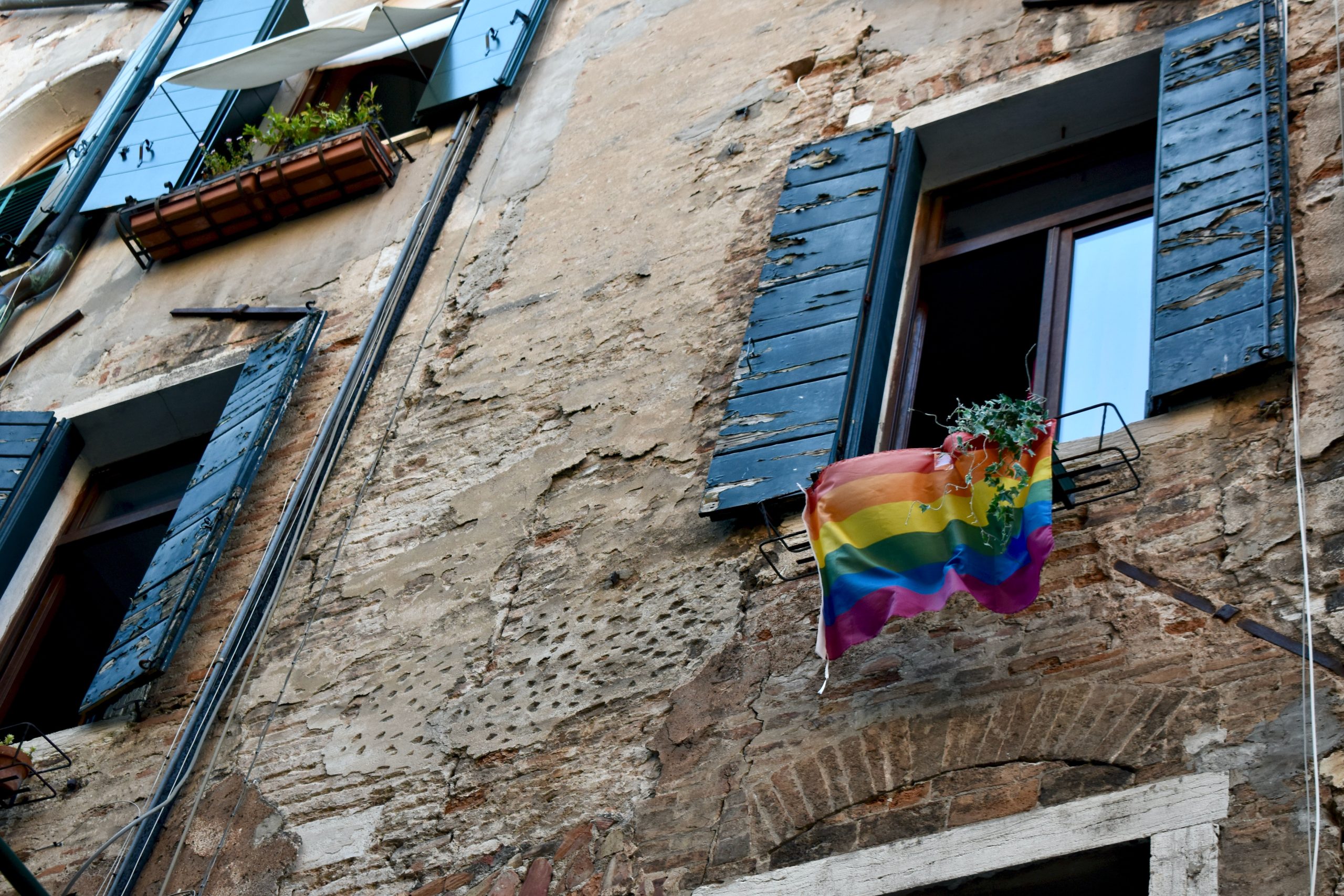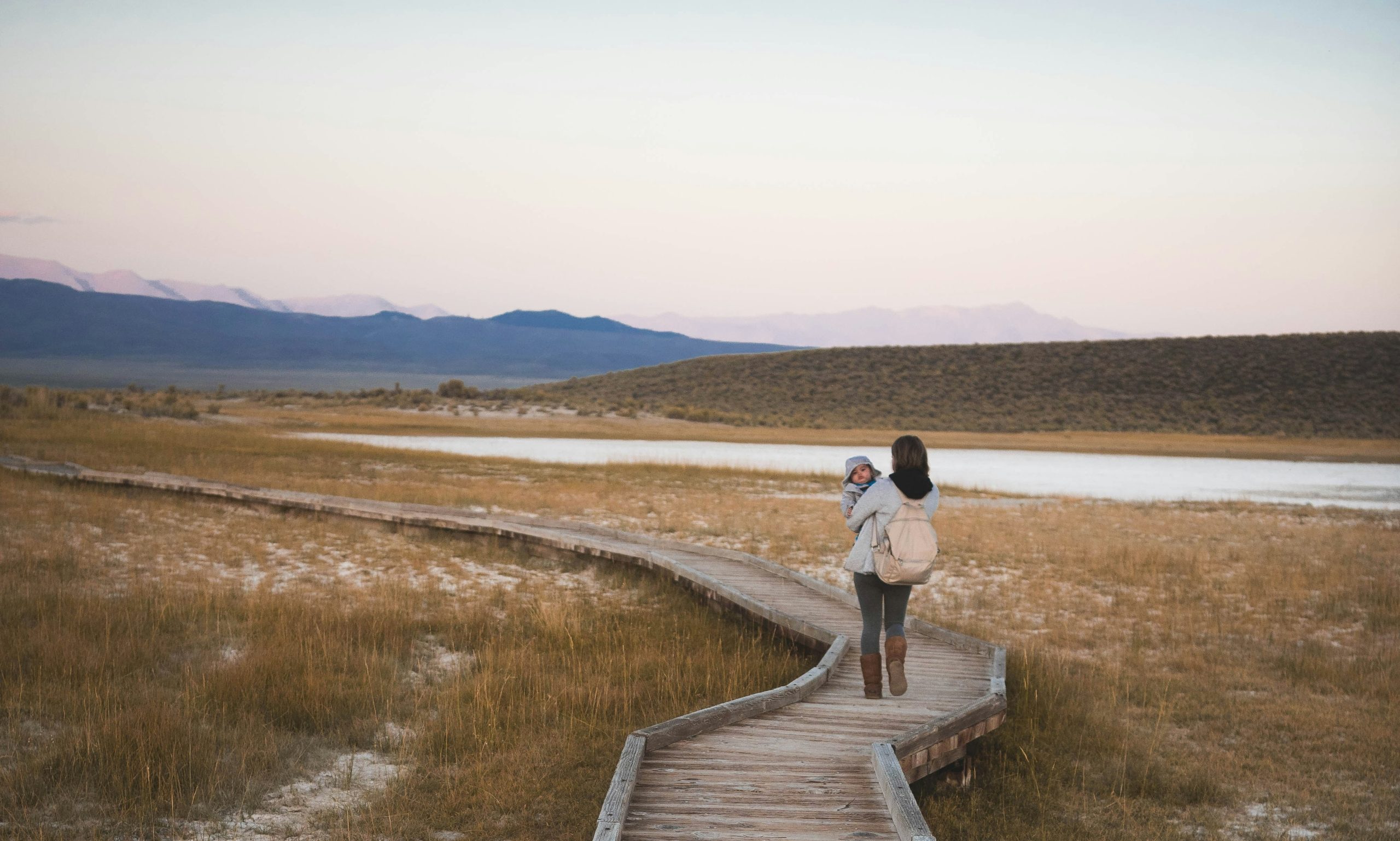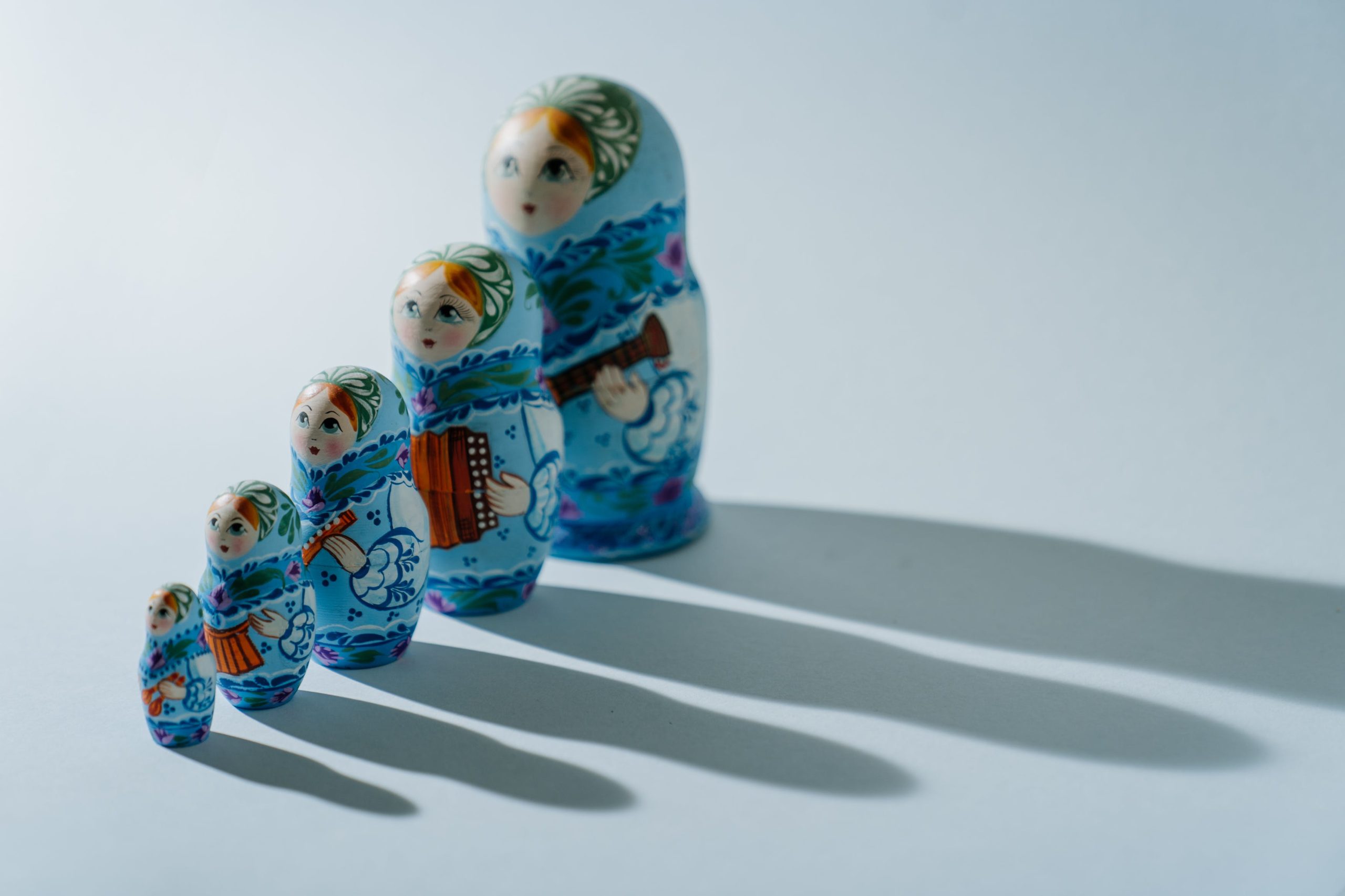Interviews
There’s No Place Like Grandma’s Abandoned Island
Meghan Gilliss’ novel twists assumptions about how families in crisis navigate isolation, addiction, and financial precarity

Meghan Gilliss’ debut novel Lungfish follows Tuck, her husband Paul, and their toddler Agnes as they all squat on Tuck’s dead grandmother’s island in the Gulf of Maine after running out of money.
While Paul undergoes substance withdrawal in the rustic house, Tuck and Agnes survive on whatever the intertidal zone offers up that day—purple dulse, sugar kelp, jackknife clams. Throughout, Tuck struggles to comprehend how it all came to pass: the empty bank account, the disintegration of trust in her marriage, the threat of starvation or discovery. But rather than rage at Paul for sinking their family into uncertainty, Tuck makes treacherous crossings to the mainland with Agnes to scrounge for dollars, and attempt to locate her father. The man, who disappeared years ago, is beneficiary to the estate; if Tuck can’t reach him via the only contact information she has – an old email address – the island will be sold to pay the executor’s fees.
Lungfish is a masterful study of isolation, disguised as a mystery. Gilliss titrates the story to us in short, concentrated vignettes unmoored from time that culminate in an ending as heart-wrenching as it is elegant. The author spoke to me over Zoom about self-definition in parenthood, culturally imposed isolation, and how her book addresses substance use disorder.
Arturo Vidich: Tuck’s husband, Paul, is addicted to an opioid-like substance. Could you talk about how you arrived at addiction as the core issue driving the story?
Meghan Gilliss: The story was born out of the isolation of new parenthood, exacerbated and confused by the isolation of having a family member with substance use disorder. And then also feeling like there was a way to figure out how to move through that isolation using art as a tool rather than using conventional wisdom or advice, or reaching out to support groups. It felt possible to me that by keeping a fictionalized record of, not experiences, but states of mind, I could figure something out. I don’t know why I thought that, and I don’t think it was a good idea! It’s not something that I would recommend to anybody else, but there was value in it in the end for me, personally.
Also, doing the writing, sneaking this time to write, feeling desperate to work on something—there was this faith in art that I had, this ill-advised faith that through the act of writing, I could create a kind of buoyancy to life, build a life raft of sorts. In a lot of ways, it felt like the biggest act of faith, maybe the first act of real faith in my life, just thinking, I’m going to keep pouring my time into this even when it keeps me from doing other things that would actually be more useful, in the hopes that one day it will, in and of itself, become useful.
AV: Useful not just to yourself, but to others.
MG: That would be a nice perk. I hope so. I was going through a lot of really terrible stuff when this book was born, but I was like, this is interesting, this state of mind. Usually, my head is screwed right onto my shoulders. I wanted to share that with others who could relate to it, or understand it. Because until you either suffer from addiction or love someone with addiction, so much is easy not to think about. It felt important to write a narrative that explored that mindset.
AV: There’s a cognitive dissonance you’re describing—of knowing something is wrong, but ignoring or looking away from it, because knowing can completely destroy everything you hold dear.
MG: Thank you for putting it that way. The question of [Tuck’s] complicity was really interesting to me. She’s thrust into this position where we as readers, or as a culture, demand a certain action of her. Part of Tuck’s anger in this novel stems from the fact that her husband is a victim, and she is actually a monster. She sees herself as a monster and understands that she is seen as such. She feels like a monster. There’s so much judgment that we project on people all the time, particularly families who are struggling with substance use disorder and addiction, and sometimes our choices, and the way that we perceive ourselves as we make those choices, are so surprising and disorienting.
As Tuck moves through her own narrative, she does begin to find her power and her ability to see for herself, which takes her a while to reclaim, deciding what she’s going to see and believe. Other people’s addictions are always mysterious. They’re so messy, and they go so far back, and we only know about other people’s addictions what they want us to know about them, in the end. So, all we have to work with are external facts.
AV: I won’t name the substance Paul is addicted to, because it’s such a reveal, but why did you choose to skip over well-known or conventional drugs like heroin or oxycontin for this obscure opioid-like substance?
MG: It’s a really good question, and one that I was wrestling with throughout the writing. Unfortunately, if you say heroin addict, or whatever, I think people know what you’re talking about. In some ways, it did help protect the book against people assuming that they knew anything. This drug, about which so little is known, only compounded Tuck’s level of unknowingness and the slipperiness of what she’s able to learn. To me, it helped illuminate the individualized complexity of each person’s substance use disorder. Even though so many behaviors of addicts are similar, the circumstances for each addiction are so different, the solutions so different, and so elusive. The fact that her husband was addicted to something that not only she knew nothing about, but the internet knew nothing about, and the FDA knew virtually nothing about, exacerbated her need not to rely on information that was out there, but just trust her own experience of what was happening, and make decisions that were rooted in an understanding that there was never going to be an understanding.
AV: Would this story be possible in a country that has a social safety net in place?
I think we’re always up for slaughter as parents, for sure.
MG: There are a lot of layers of isolation in this story, but definitely one of those layers is culturally imposed isolation. And also the inherited idea I think a lot of Americans are born with, that even if we can’t take care of ourselves, we should be able to take care of ourselves. Tuck sort of invents a lot of reasons for why she’s not worthy of asking for help and I certainly don’t think that’s unique to this character in this book. In some cases, I think this country actually does provide help that’s not taken because we’re sort of taught to be stubborn about it, or taught to blame ourselves for our own failings or difficulties.
But then, in a lot of cases, help is so hard to access. If you’re somebody experiencing substance use disorder, we haven’t figured out how to support that. I don’t know what it’s like in your state, but there are virtually no public or hospital detox centers in Maine. If you want to have medical oversight while you’re putting your body through that, you not only need to be able to pay, but you need to be able to trust people in your most vulnerable moment—people who are making a profit off of you. For a lot of people, that’s a big barrier, whether it’s for financial or emotional reasons.
AV: The experience of your book was almost too real for me. At one point, Tuck concludes: “The belief that I’m good, it’s dawned on me, has been destructive.” Could you talk about what, for you, it means to be a good mother while in crisis mode?
MG: As a parent, maybe more as a mother—I don’t know, I’m sure all parents experience it—you get told you’re doing a lot of little things wrong, from the way you’re doing sleep training, or how much screen time you’re allowing, but beyond that, you move from being a person who isn’t necessarily viewed in moral terms, to being a person who—everything you do is judged. The decisions you make almost become public. They’re up for critique. In Tuck’s situation, I think, she landed herself in a situation that was not of her choosing, which is not to say that she didn’t play her own part in getting herself there. But I think her case is an exaggerated version of the situation a lot of parents find themselves in, when suddenly the decisions they’re making about parenting are viewed in moral terms. We think about Tuck avoiding facing the situation she’s in. If she was by herself, we wouldn’t care one bit. But because she has this child with her, we’re much freer to judge the choices she makes.
AV: She judges herself, as well. There’s a moment where she’s driving with a huge propane tank in the passenger seat, and Agnes is strapped into her carseat right behind it. Every parent has moments like that, where we judge our own decisions. You can suspend the judgment of others, or feel like you don’t benefit from other people’s judgments, but self-judgment can cut so deeply.
Judgment can be harsh, but judgment also can be useful.
MG: Yeah. And judgment isn’t always a bad thing either, right? A big part of this book is the way the feeling of being judged forces Tuck to see herself. She imagines she’s being watched by Sharon, a figure who comes in later, and for her, even when she’s not being seen, just imagining she’s being seen by this third party starts to make her more aware of the perils she’s in and the choices that she needs to make. So judgment can be harsh, but judgment also can be useful. But I think we’re always up for slaughter as parents, for sure.
AV: Tuck’s family seeks refuge from their problems on her grandmother’s island, a place Tuck visited as a child. What was it about that particular geography you found so compelling as a setting?
MG: In some ways, using an island as a setting is the oldest trick in the book. It’s such a trope. There I was, stubbornly writing this book, and rejecting a lot of what I had learned about ways to make writing easier for ourselves. There’s nothing really subtle about using an island as a metaphor. But for whatever reason, it just felt like yes, I’m going to put that isolation in stark view of everything and just let it be bald. But it’s also a setting that I have deep intimacy with, and that I’ve written about again and again in different ways. I also notice, as I get older, the ways in which the island setting is the ideal setting. What is it about myself that is drawn to this isolation and actually doesn’t want to be in that constant conversation with the outside world? It has become a bit alarming to realize that tendency in myself to just prefer to be separate.
AV: What’s next for you?
MG: I have a project, a collection of connected short stories that are set in my weird little neighborhood during the first year of COVID.









